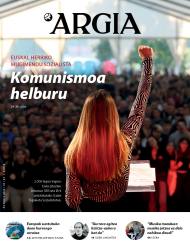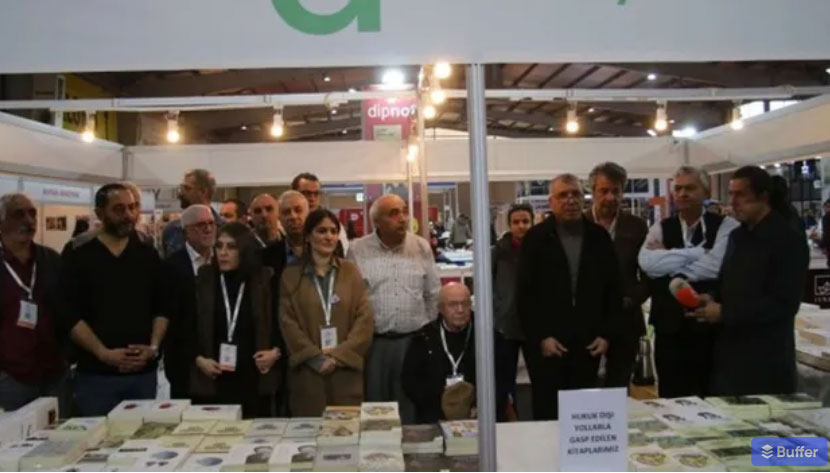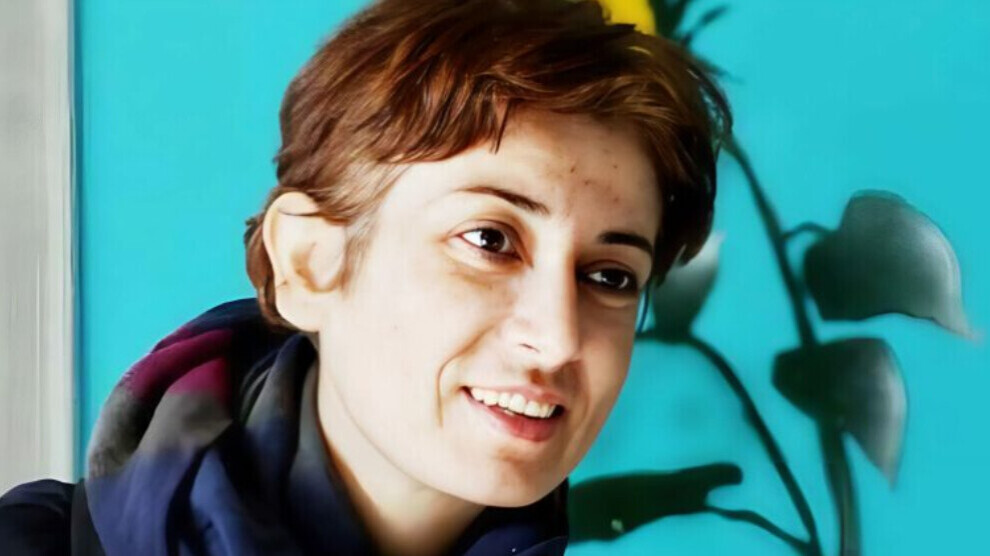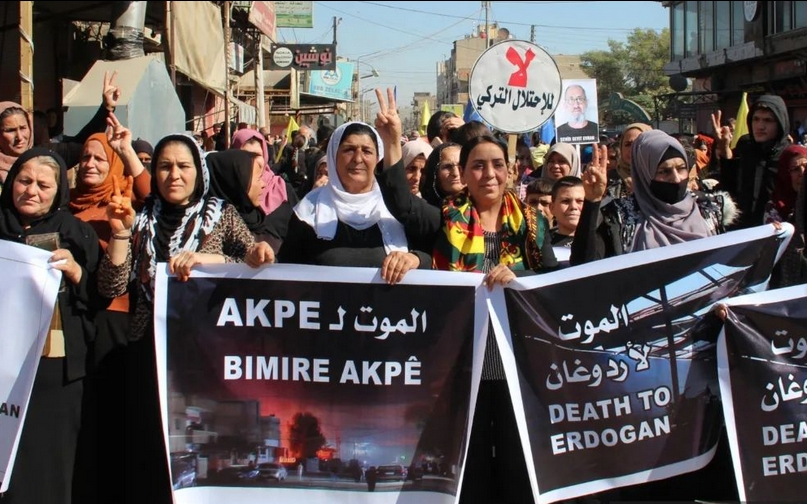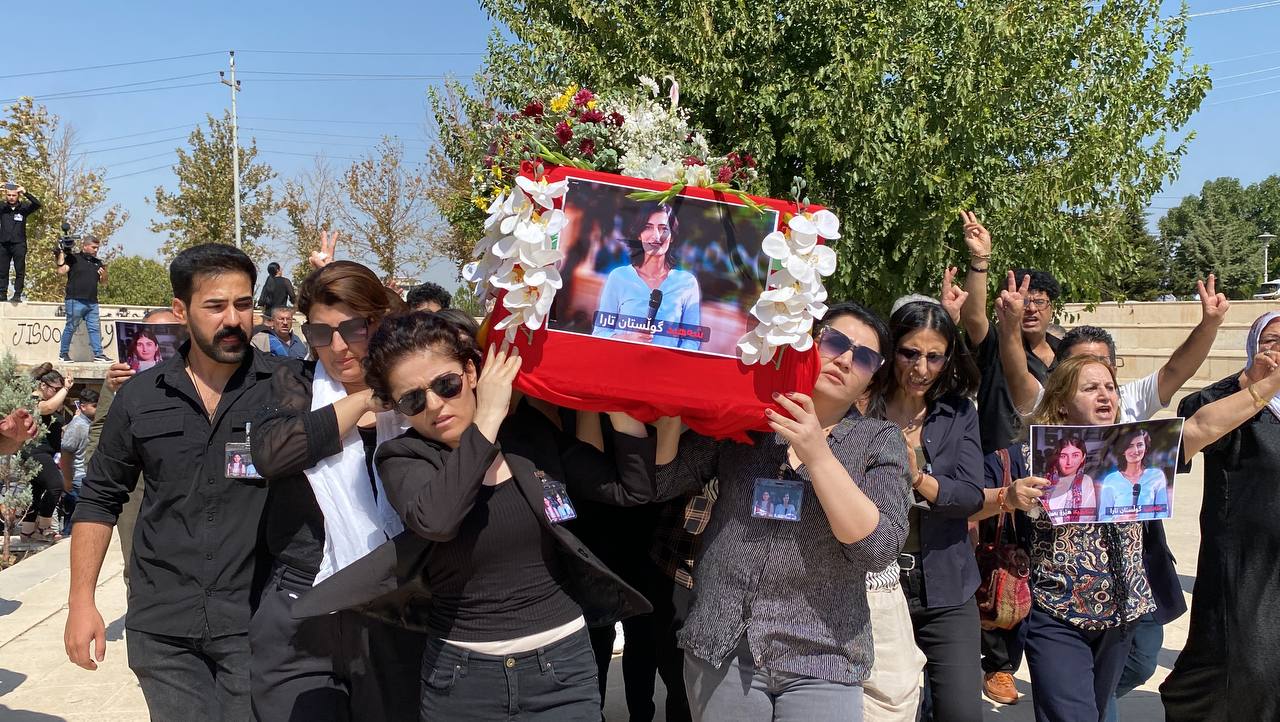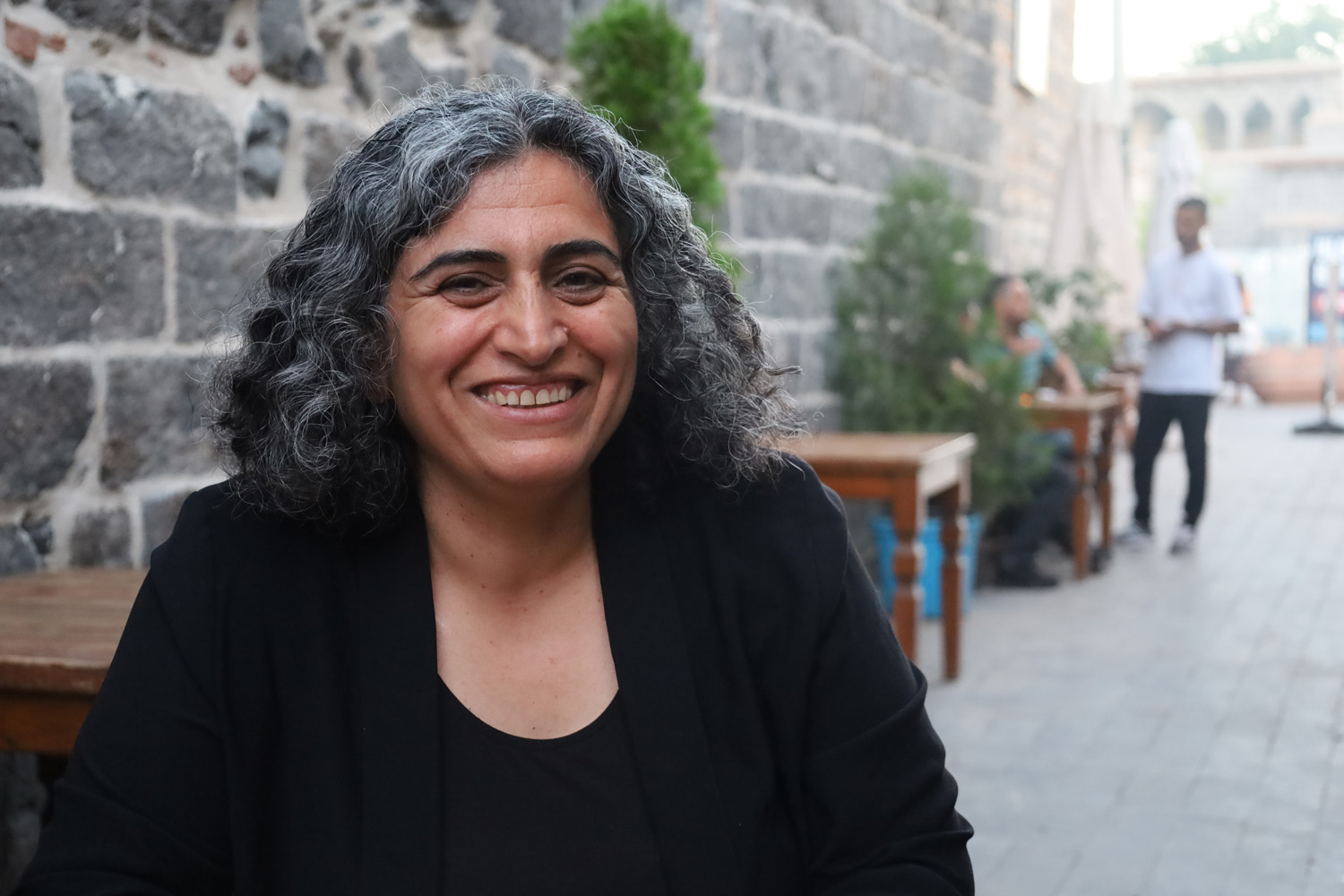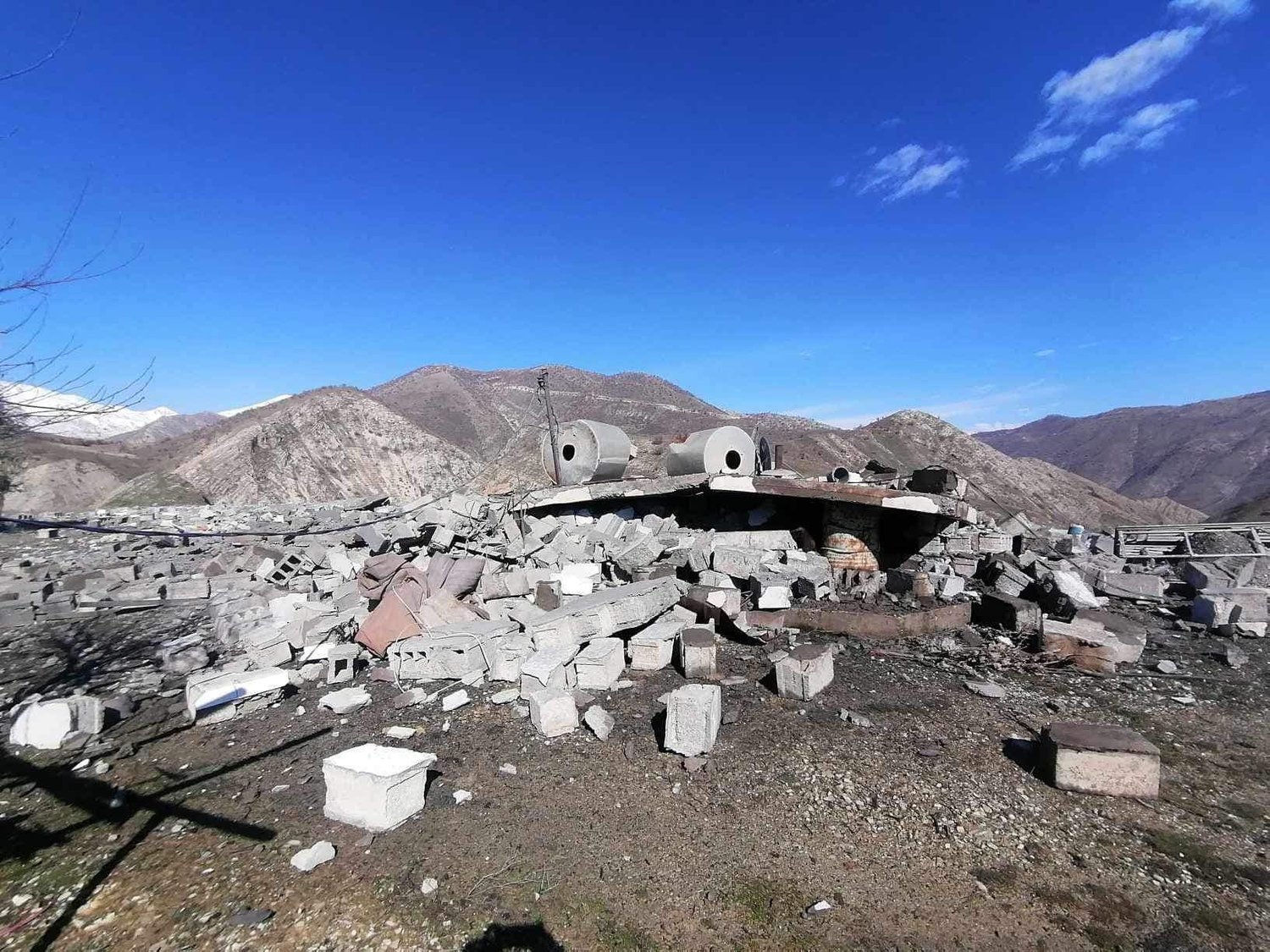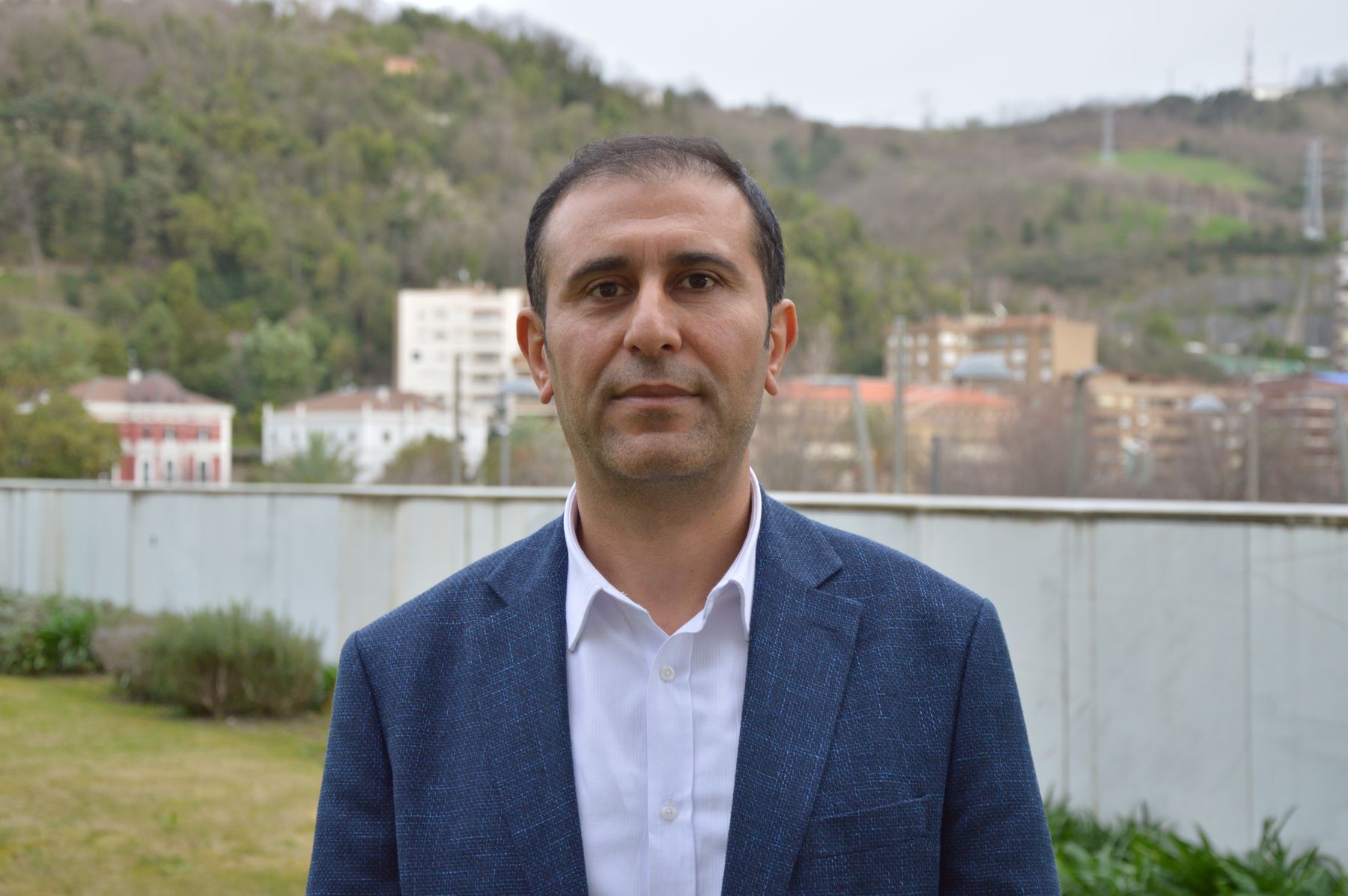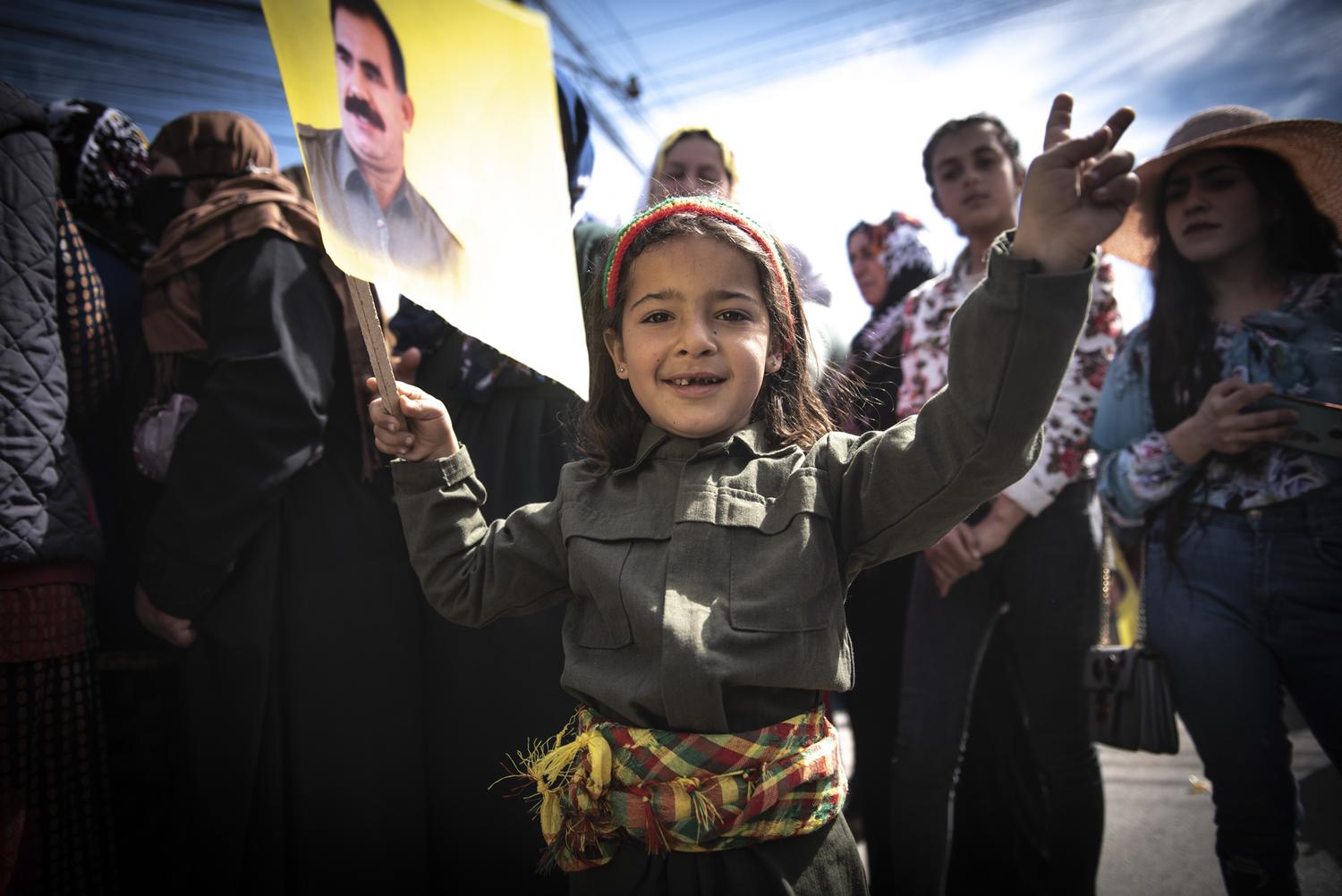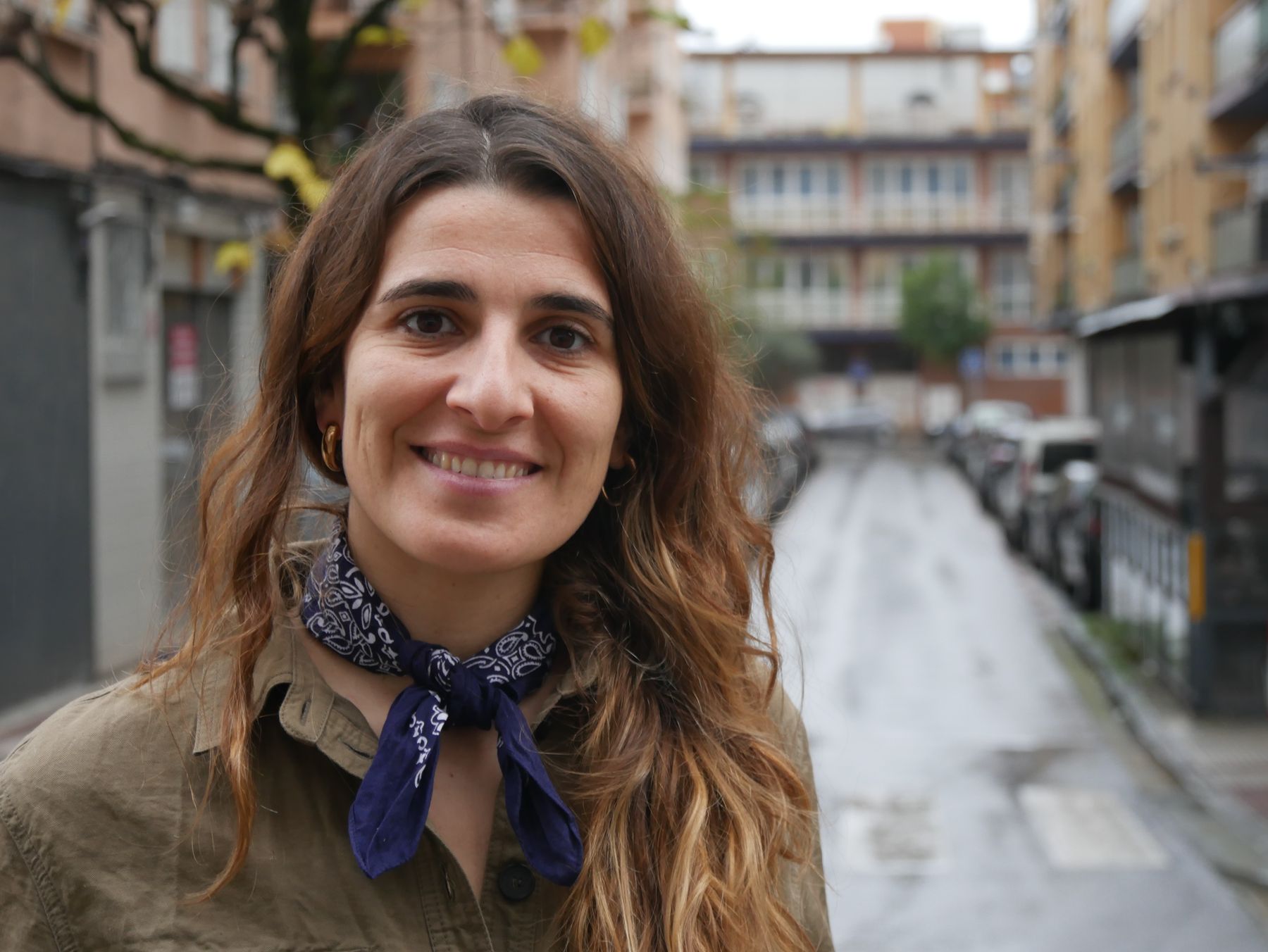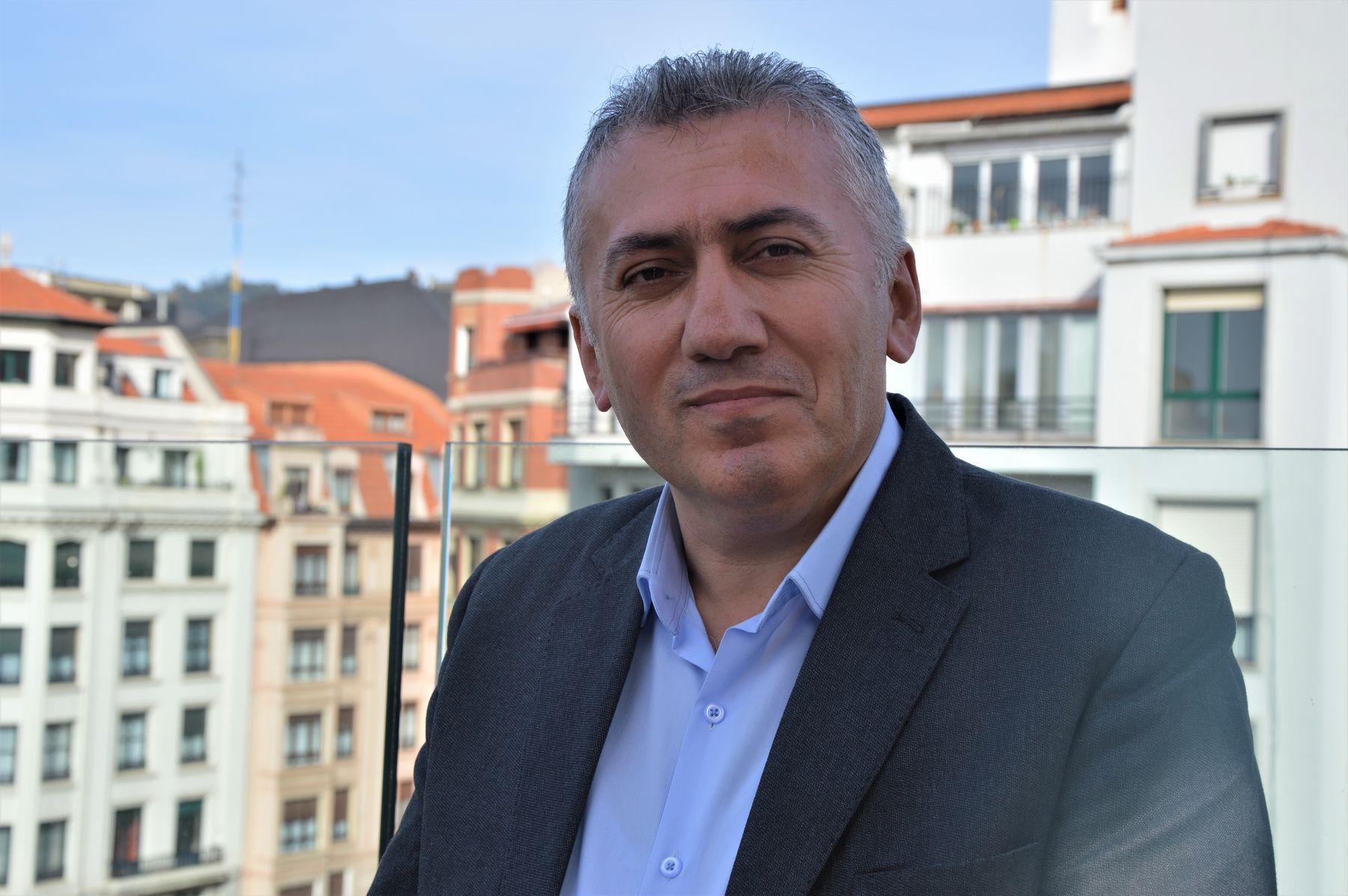“The Islamic State and Turkey share the same reactionary and patriarchal mindset”
- Rawda Hasan, the Kurds Nariman Evdike and Manal Mohammed, representatives of the Northern and Eastern Self-Administration of Syria, were in December in the Basque Country at the hand of the Suargi association. They have visited the Durango Fair, the Basque Parliament or the Navarre Parliament to exchange ideas and spread their message.
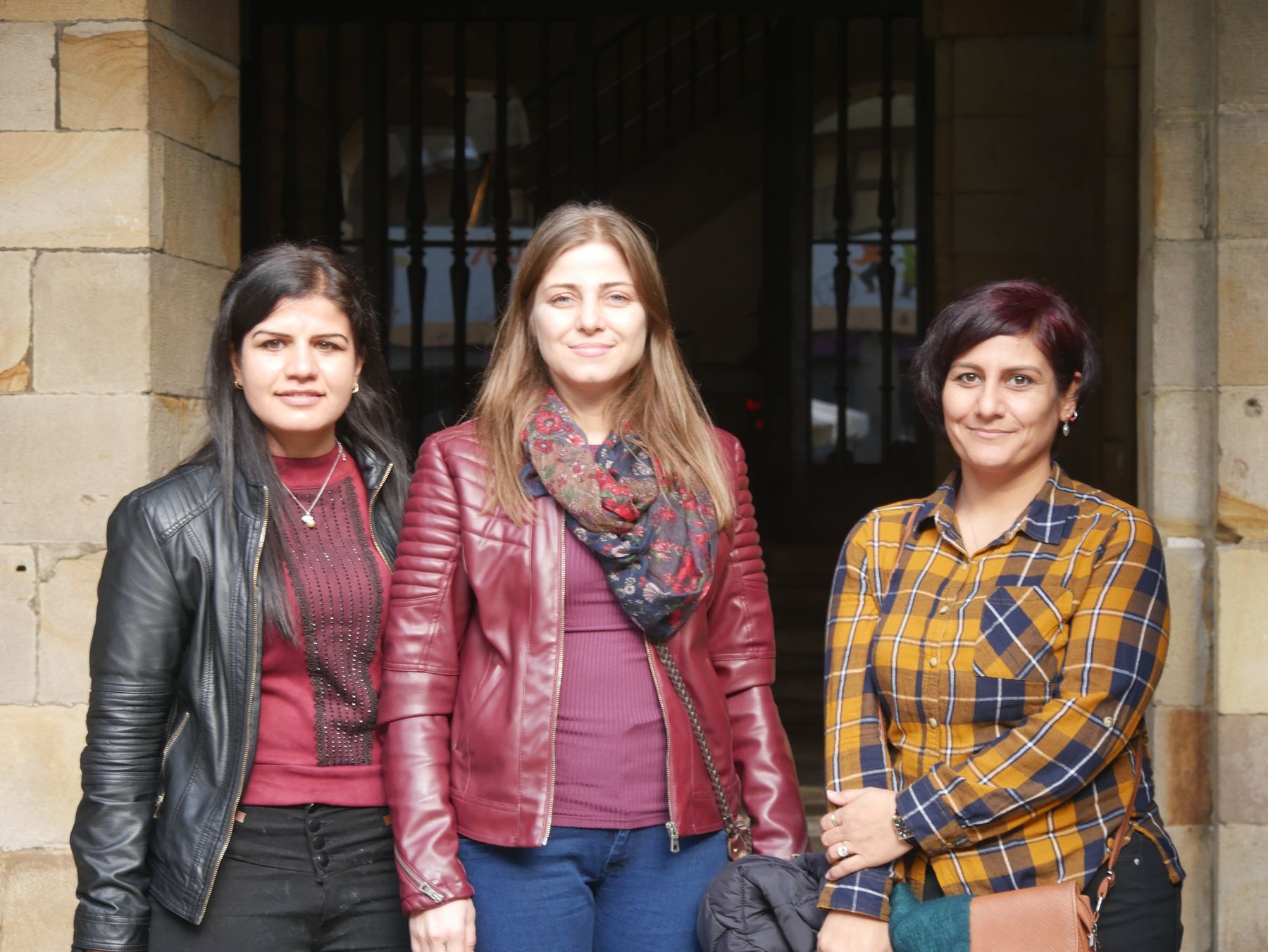
What was the situation of Kurdish culture in Syria before the revolution, in other words in the Baxar Al Assad regime?
Rawda Hasan: We must speak in general, not only in Kurdish culture. The various Mesopotamian cultures were prohibited: Armenia, Zircasian, Kurdish and other peoples. In order to prevent the disappearance of ancient languages, following the revolution of 2012, we have created institutions to protect cultural expressions and within them we have given absolute importance to languages.
In fact, the official languages of the Northern and Eastern Self-Administration of Syria are Arabic, Kurdish and Assyrian, and we have created organisations for the defence of the Kurdish and Assyrian people. They are taught in the education system.
Many older people were on the verge of losing their curvature, and that is why we have launched initiatives. Since 2014, we have chosen to strengthen the curvature and have opened nine centres. We have also opened centres of Assyrian culture.
From a cultural point of view, we have tried to bring together all the writers that existed before the revolution. Under the rule of Baxar Al Assad, they were forbidden to publish their texts, so many took the path of exile.
In the field of music, for example, in the 1990s there were many Kurdish singers, but they could not distribute their cassettes in Syria. In any case, there was the same ban in Turkey or in Iran, the aim of which was to consolidate the nation-state, silencing other peoples within its territory.
What is the work of the Union of Intellectuals and Writers?
Nariman Evdike: Before the revolution, the people who used the curvature of writing had two options: to refuse or to stop. The same was true of those who wrote in Arabic about the Kurdish people. One of our objectives is to collect all those unpublished texts.
Work therefore focuses on two axes. Compile texts by writers who were inside Syria or in exile, some writings before the 1990s, and publish them.
Another objective is to protect all the people who are writing today. Our territory, in Kurdistan, has always been relegated by governments in terms of economic or cultural development, both in one state and in another. That is why it is so important to us that it is published in a curvo, that it allows writers to participate in the development of the language.
In addition, we have set up translation committees to make the texts of other countries, including Europe, available in Arabic or Curvo.
There is another commission to document and keep all the texts of the revolution. It's our editorial, Sheler. We have a great printing press. We have another editorial whose mission is to translate and publish texts on curves. We are opening libraries and we are making a great effort to translate healing texts into Arabic.
.jpg)
They're talking about revolution, but that happened before the fight against the Islamic State became famous. What was the revolution?
R. H.: We cast out the regime of the territories with a Kurdish majority, although some forces of the Qamixlon and Hasak regime have remained. Self-administration has not been recognised and we are obliged to relate to them. For example, to obtain passports or identity documents. Between our forces and our regime there has been no violent clash, even if it has ever happened.
I have been mayor of Qamixlo and sometimes we have coordinated to publish some documents, for example. In any case, citizens who for military reasons – for failure to perform military service – or for political reasons want to be detained by the regime cannot enter the neighborhoods controlled by Baxar Al Assad. For example, a member of our representation has not been able to come to Euskal Herria because he could not take that risk.
What was the situation of women before the revolution and what is it now?
Manal Mohammed: Before the revolution, women had no role in society. Not only on Kurdish territory, but throughout Syria. They had the chance to study at most, but then they had to stay at home. The law also did not help, and men had the power to kill their wives or the women of the family, on the grounds of honour. In short, women were not entitled to self-defence.
After the 2012 revolution, women have moved to the front line, and that's why it has become the female revolution. In fact, women have participated in all areas of the construction of self-administration and, especially, in the elaboration of laws favorable to women. We cannot forget, of course, the fight against the YPJ (Women’s Protection Brigades) and the Islamic State. Women have acted actively, and that was evident in the liberation of Rakka.
Our system is based on the dual presidency. In all positions of responsibility there must be a woman and a man in the whole structure of self-administration. We have moved this concept of equality to every corner of society and promoted women’s assemblies in every respect.
At first, Kurdish women took on this task, but after defeating the Islamic State, Arab women are also part of the movement. We have cooperated with them in setting up Arab women ' s assemblies, as well as with some ethnic minorities.
You have pushed for the Women's Act, but some important points, such as the ban on polygamy, are not in force in the Arab-majority territories.
M. M.: In 2014, the law was passed in the cantons of Kobane, Jazira and Afrin, with a Kurdish majority. At first we had a lot of trouble getting society to accept it, but consensus is a great day. Our objective is to strengthen women in the political, economic and military spheres. The three fields are compulsory. For example, if women are politically strong, but economically dependent, there will be no progress.
As of 2015, the liberations of the territories of the Arab majority Tabqa, Rakka and Deir Ez Zour came. In these areas we have promoted women ' s assemblies, but the tribal mentality of the clans is still in force. Consequently, the law has not been passed. In other words, even though the Northern and Eastern Self-administration of Syria imposes the law, the cantons have not ratified it. Debates are still under way.
.jpg)
What would be necessary for the approval of the Women's Law in these spaces?
M. M.: The current situation is not acceptable and the women ' s councils in these cantons have demanded their approval, so the struggle continues.
On the other hand, in the laws of the regime, men have the right to hold their wives and until 2020, femicides linked to honour crimes have not been treated like any other crime. Do you think this change would happen if its laws didn't exist?
M. M.: The influence of self-administration is clear in the Syrian Regime. Changes in the situation of women are also taking place in the Arab countries. For example, the dual presidency has not created any problems and on 25 November many men took part in demonstrations against male violence.
Some are agreeing to receive training against discrimination against women. If we do not change the old mindset, progress cannot be made. Our work is that too, and if we do, the laws will be adopted democratically.
Laws continue to produce laws, feminicides.
M. M.: Unfortunately, especially in the Arab territories, they continue to occur. There are different forms of intervention, either through the Women's House, self-administration or the justice system. Whether or not we denounce families, we open proceedings and enforce the law.
Are the two most important threats of women in northern and eastern Syria the Islamic State and Turkey?
M. M.: Yes, they have the same patriarchal and reactionary mindset. Our movement and the participation of women is a threat to them in political life. Both Daex and the Turkish Government are part of the attacks on women. For example, when Turkey invaded Afrin in 2018, the body of an YPJ wrestler was mutilated by Barin Koban. When in 2019 Turkey invaded between Tall Abyad and Serecyye, the politician Avrin Halaf was murdered and mutilated. In June 2020, a Turkish drone bombed a meeting in Kongra Star and killed three members.
Daex, for its part, particularly hits Arab women. Two women in Shaddi Self-Administration were killed in 2020. They were previously threatened, but they did not leave their responsibilities.
On the part of self-administration, what should be essential to achieving lasting peace in Syria?
R. H.: It will be very difficult, as there are several foreign forces in Syria. The country is geographically important for Russia and the US. Peace will only be possible if both forces reach agreement, but the unique objectives of the Russians and Americans are their interests. The demands of the Syrian people and democracy do not matter to them.
In 2019, soldiers from the Syrian Government entered to combat the Turkish invasion in some places, but politically there does not seem to have been any major breakthroughs between the Self-Administration and the regime, right?
R. H.: There was a military agreement with the Regime and with Russia to combat Turkey, but not politically. We are proposing a political programme to the Russian Government. On the military side, we want our military group – the Syrian Democratic Forces – to be part of the government’s army, but with autonomy. We also call for the official status of the Kurduera and call for a change in the name of the state. It is now the “Syrian Arab Republic” and we want it to be the “Republic of Syria”. There are other issues, but the main one is the decentralization of Syrian power.
EE.UU. He still sees PKK as a terrorist organisation, what is his alliance like?
R. H.: Our agreement with the United States is limited to the fight against the Islamic State. It is clear that the Americans have historic agreements with Turkey and are not going to give up on them.
Turkish helicopters and fighter aircraft cover the sky in the Kurdish area in northern Iraq. The Turkish Air Force has bombed 381 sites in the major military operation in recent weeks in the Kurdistan Autonomous Region (DRC). The Turkish Ministry of Defence has stated that "the... [+]
Urtzi Urrutikoetxea nazioarteko kazetariarekin mintzatu gara Radio Kobanen, iaz idatzitako Kurdistan-Argi bat ekialde hurbilean liburuari buruz. Testuak azken urteetako gertakizunei erreparatzen die, eta atzerago ere begiratzen du herri kurduaren egoera politikoa eta... [+]









